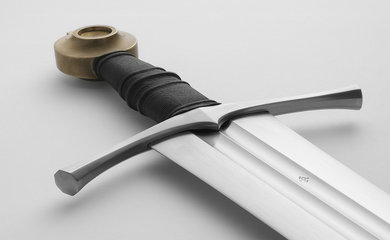Despite sliding ratings, the CW’s Reign has become guilty pleasure viewing across the US, where the fantasy programme only loosely based on the life of Mary, Queen of Scots is riveting in its ridiculousness. Find a Reign fan and you will find someone who acknowledges the ludicrous nature of the show while unabashedly embracing it at the same time—this is a programme that lends itself to ardent fannishness. And Thursday’s finale promises to really set the cat among the pigeons, as we meet a young Queen Elizabeth I (wild hair and all, according to the trailer—yes, TV shows have trailers now) for the very first time.
To say that the programme is loosely based on the life of Mary is perhaps an overstatement: There are in fact characters named Mary, Elizabeth, Francis, and Catherine at the centre of the drama. Their titles and roles bear a vague resemblance to those of their real-life counterparts from there. Beyond that, Reign diverges into fantasyland, taking considerable liberties with history as well as reality; it’s very much anchored in a world where fantastic elements are integrated in a way that would likely be considered magical realism if it weren’t for the fact that it’s considered trashy television—a telling testimony to social attitudes about women’s media.
Because Reign is very much women’s media, and it’s specifically aimed at young women. Critics have compared it to the highly successful Gossip Girl, since it’s complete with endless intrigues, baroque plots, fancy clothes (that bear no resemblance whatsoever to those worn in the period), sex, and drama. While Reign doesn’t have the critical appeal or following of Gossip Girl, it’s clearly aiming to be a contender. And thanks to the dismissive view of women’s media, particularly that aimed at young women, it’s often written off in critical assessments of pop culture.
Yes, Reign is fluff. But it’s also deserving of analysis.
Perhaps the central departure from history in the programme, of course, is the relationship between Francis and Mary. Both characters were aged up for the sensibilities of modern audiences, who likely wouldn’t have enjoyed the thought of 16 and 14-year-old spouses and monarchs. The tempestuous nature of a series of love triangles revolving around Mary (alas, all heterosexual) also isn’t documented in history, though it’s not entirely implausible.
Moreover, the Francis of the programme is demonstrating a persistent and irritating refusal to die—Reign has somehow magically extended the life of their extremely short marriage well beyond the two years of actual history. While it might make for good television, fans of history who aren’t immense fans of Francis make a regular habit of complaining about his miraculous survival—a recent episode in which Francis started bleeding from his ear proved to be a dismaying false alarm.
The direction of the show is also unclear. Reign specifically purports to be about the early years of Mary, Queen of Scots and thus presumably may be planning to limit itself to her years in France, which were relatively short. However, her history truly started to get interesting when she relocated to Scotland, went through an assortment of spouses, was linked with an unsavory explosion in a garden, and mounted a serious offensive in an attempt to gain control of the British throne. Her years imprisoned at Elizabeth’s hand and ultimate execution on order from her reluctant relative are also compelling parts of the queen’s rather tragic story, and it seems likely they won’t be told, especially if the programme insists on keeping Francis alive, as he’s rather a stumbling block to returning to Scotland.
The historical period in which the programme is set is a fascinating one—there’s not really any need to embellish it, truthfully. The dramas of the struggle between Elizabeth and Mary are a truth is stranger than fiction story, and while some adjustments to history for the sake of convenience, such as renaming some individuals to cope with the excessive reuse of names like ‘Mary’ and ‘Francis,’ is reasonable service to the story, there’s something sort of sad about seeing the history abandoned wholesale.
At the same time, though, it’s also kind of liberating. The programme makes no pretensions when it comes to the story being told and the focus is not on actual history but the development of the characters and being purely entertaining. There’s something about Reign that speaks to the current condition of society, where so many are seeking escapism in the face of a grim world that often feels incredibly defeating. There is nothing in Reign to reflect reality, and thus nothing to be disappointed in.
There’s also a lot to love in a strangely charming way. Sometimes the characters are infuriating dull (Francis) or naïve (Lola), but they’re also sharp (Catherine) and at times outright critical of society—Grier in particular really encapsulates this with her decision to continue with sex work this season because she sees the personal freedom it offers. It’s a striking decision in a television landscape where sex work is either highly stigmatised or turned into something titillating for viewers: In this case, it’s a matter of fact way to make a living, and one that allows women independence when they’re allowed little by society.
This week’s finale won’t be the last we see of Reign, which has been picked up for a third season, and as with season one’s, it’s like to end with the predictable US television cliffhanger moment to entice people back for the premiere. Like the rest of Reign, though, it’s going to make for immensely entertaining viewing—and seeing Elizabeth finally emerge from the shadows will be welcome, as she’s loomed as an everpresent menace over the characters and I’m highly interested to meet her. If she’s as deliciously out of touch with history as the rest of Reign, one can only imagine how fantastic her characterisation will be.

